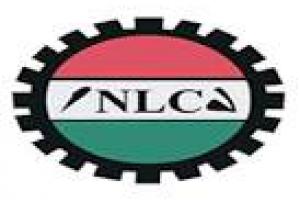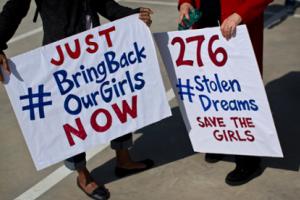Nigeria's Elections: Will The Voice of the Working Class Be Heard?
Equal Times
 A powerful few benefit by dividing the Nigerian people along ethnic, religious and sectarian lines for political gain. Massive unemployment --particularly in Northern Nigeria -- has fed the insurgency; while Nigerian workers – bus and okada (motorcycle taxi) drivers, market stall holders, hawkers, teachers, commuters and others – are especially vulnerable to Boko Haram’s attacks.
A powerful few benefit by dividing the Nigerian people along ethnic, religious and sectarian lines for political gain. Massive unemployment --particularly in Northern Nigeria -- has fed the insurgency; while Nigerian workers – bus and okada (motorcycle taxi) drivers, market stall holders, hawkers, teachers, commuters and others – are especially vulnerable to Boko Haram’s attacks.



Spread the word